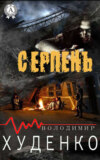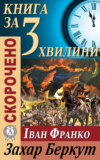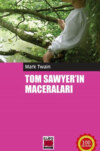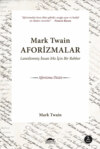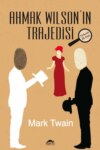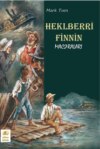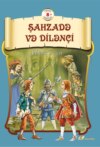Kitabı oku: «The Innocents Abroad», sayfa 34
In an hour, we reached Nain, where Christ raised the widow’s son to life. Nain is Magdala on a small scale. It has no population of any consequence. Within a hundred yards of it is the original graveyard, for aught I know; the tombstones lie flat on the ground, which is Jewish fashion in Syria. I believe the Moslems do not allow them to have upright tombstones. A Moslem grave is usually roughly plastered over and whitewashed, and has at one end an upright projection which is shaped into exceedingly rude attempts at ornamentation. In the cities, there is often no appearance of a grave at all; a tall, slender marble tombstone, elaborately lettered, gilded and painted, marks the burial place, and this is surmounted by a turban, so carved and shaped as to signify the dead man’s rank in life.
They showed a fragment of ancient wall which they said was one side of the gate out of which the widow’s dead son was being brought so many centuries ago when Jesus met the procession:
“Now when he came nigh to the gate of the city, behold there was a dead man carried out, the only son of his mother, and she was a widow: and much people of the city was with her.
“And when the Lord saw her, he had compassion on her, and said, Weep not.
“And he came and touched the bier: and they that bare him stood still. And he said, Young man, I say unto thee, arise.
“And he that was dead sat up, and began to speak. And he delivered him to his mother.
“And there came a fear on all. And they glorified God, saying, That a great prophet is risen up among us; and That God hath visited his people.”
A little mosque stands upon the spot which tradition says was occupied by the widow’s dwelling. Two or three aged Arabs sat about its door. We entered, and the pilgrims broke specimens from the foundation walls, though they had to touch, and even step, upon the “praying carpets” to do it. It was almost the same as breaking pieces from the hearts of those old Arabs. To step rudely upon the sacred praying mats, with booted feet – a thing not done by any Arab – was to inflict pain upon men who had not offended us in any way. Suppose a party of armed foreigners were to enter a village church in America and break ornaments from the altar railings for curiosities, and climb up and walk upon the Bible and the pulpit cushions? However, the cases are different. One is the profanation of a temple of our faith – the other only the profanation of a pagan one.
We descended to the Plain again, and halted a moment at a well – of Abraham’s time, no doubt. It was in a desert place. It was walled three feet above ground with squared and heavy blocks of stone, after the manner of Bible pictures. Around it some camels stood, and others knelt. There was a group of sober little donkeys with naked, dusky children clambering about them, or sitting astride their rumps, or pulling their tails. Tawny, black-eyed, barefooted maids, arrayed in rags and adorned with brazen armlets and pinchbeck ear-rings, were poising water-jars upon their heads, or drawing water from the well. A flock of sheep stood by, waiting for the shepherds to fill the hollowed stones with water, so that they might drink – stones which, like those that walled the well, were worn smooth and deeply creased by the chafing chins of a hundred generations of thirsty animals. Picturesque Arabs sat upon the ground, in groups, and solemnly smoked their long-stemmed chibouks. Other Arabs were filling black hog-skins with water – skins which, well filled, and distended with water till the short legs projected painfully out of the proper line, looked like the corpses of hogs bloated by drowning. Here was a grand Oriental picture which I had worshiped a thousand times in soft, rich steel engravings! But in the engraving there was no desolation; no dirt; no rags; no fleas; no ugly features; no sore eyes; no feasting flies; no besotted ignorance in the countenances; no raw places on the donkeys’ backs; no disagreeable jabbering in unknown tongues; no stench of camels; no suggestion that a couple of tons of powder placed under the party and touched off would heighten the effect and give to the scene a genuine interest and a charm which it would always be pleasant to recall, even though a man lived a thousand years.
Oriental scenes look best in steel engravings. I cannot be imposed upon any more by that picture of the Queen of Sheba visiting Solomon. I shall say to myself, You look fine, Madam but your feet are not clean and you smell like a camel.
Presently a wild Arab in charge of a camel train recognized an old friend in Ferguson, and they ran and fell upon each other’s necks and kissed each other’s grimy, bearded faces upon both cheeks. It explained instantly a something which had always seemed to me only a farfetched Oriental figure of speech. I refer to the circumstance of Christ’s rebuking a Pharisee, or some such character, and reminding him that from him he had received no “kiss of welcome."
It did not seem reasonable to me that men should kiss each other, but I am aware, now, that they did. There was reason in it, too. The custom was natural and proper; because people must kiss, and a man would not be likely to kiss one of the women of this country of his own free will and accord. One must travel, to learn. Every day, now, old Scriptural phrases that never possessed any significance for me before, take to themselves a meaning.
We journeyed around the base of the mountain – “Little Hermon,” – past the old Crusaders’ castle of El Fuleh, and arrived at Shunem. This was another Magdala, to a fraction, frescoes and all. Here, tradition says, the prophet Samuel was born, and here the Shunamite woman built a little house upon the city wall for the accommodation of the prophet Elisha. Elisha asked her what she expected in return. It was a perfectly natural question, for these people are and were in the habit of proffering favors and services and then expecting and begging for pay. Elisha knew them well. He could not comprehend that any body should build for him that humble little chamber for the mere sake of old friendship, and with no selfish motive whatever. It used to seem a very impolite, not to say a rude, question, for Elisha to ask the woman, but it does not seem so to me now. The woman said she expected nothing. Then for her goodness and her unselfishness, he rejoiced her heart with the news that she should bear a son. It was a high reward – but she would not have thanked him for a daughter – daughters have always been unpopular here. The son was born, grew, waxed strong, died. Elisha restored him to life in Shunem.
We found here a grove of lemon trees – cool, shady, hung with fruit. One is apt to overestimate beauty when it is rare, but to me this grove seemed very beautiful. It was beautiful. I do not overestimate it. I must always remember Shunem gratefully, as a place which gave to us this leafy shelter after our long, hot ride. We lunched, rested, chatted, smoked our pipes an hour, and then mounted and moved on.
As we trotted across the Plain of Jezreel, we met half a dozen Digger Indians (Bedouins) with very long spears in their hands, cavorting around on old crowbait horses, and spearing imaginary enemies; whooping, and fluttering their rags in the wind, and carrying on in every respect like a pack of hopeless lunatics. At last, here were the “wild, free sons of the desert, speeding over the plain like the wind, on their beautiful Arabian mares” we had read so much about and longed so much to see! Here were the “picturesque costumes!” This was the “gallant spectacle!” Tatterdemalion vagrants – cheap braggadocio – “Arabian mares” spined and necked like the ichthyosaurus in the museum, and humped and cornered like a dromedary! To glance at the genuine son of the desert is to take the romance out of him forever – to behold his steed is to long in charity to strip his harness off and let him fall to pieces.
Presently we came to a ruinous old town on a hill, the same being the ancient Jezreel.
Ahab, King of Samaria, (this was a very vast kingdom, for those days, and was very nearly half as large as Rhode Island) dwelt in the city of Jezreel, which was his capital. Near him lived a man by the name of Naboth, who had a vineyard. The King asked him for it, and when he would not give it, offered to buy it. But Naboth refused to sell it. In those days it was considered a sort of crime to part with one’s inheritance at any price – and even if a man did part with it, it reverted to himself or his heirs again at the next jubilee year. So this spoiled child of a King went and lay down on the bed with his face to the wall, and grieved sorely. The Queen, a notorious character in those days, and whose name is a by-word and a reproach even in these, came in and asked him wherefore he sorrowed, and he told her. Jezebel said she could secure the vineyard; and she went forth and forged letters to the nobles and wise men, in the King’s name, and ordered them to proclaim a fast and set Naboth on high before the people, and suborn two witnesses to swear that he had blasphemed. They did it, and the people stoned the accused by the city wall, and he died. Then Jezebel came and told the King, and said, Behold, Naboth is no more – rise up and seize the vineyard. So Ahab seized the vineyard, and went into it to possess it. But the Prophet Elijah came to him there and read his fate to him, and the fate of Jezebel; and said that in the place where dogs licked the blood of Naboth, dogs should also lick his blood – and he said, likewise, the dogs should eat Jezebel by the wall of Jezreel. In the course of time, the King was killed in battle, and when his chariot wheels were washed in the pool of Samaria, the dogs licked the blood. In after years, Jehu, who was King of Israel, marched down against Jezreel, by order of one of the Prophets, and administered one of those convincing rebukes so common among the people of those days: he killed many kings and their subjects, and as he came along he saw Jezebel, painted and finely dressed, looking out of a window, and ordered that she be thrown down to him. A servant did it, and Jehu’s horse trampled her under foot. Then Jehu went in and sat down to dinner; and presently he said, Go and bury this cursed woman, for she is a King’s daughter. The spirit of charity came upon him too late, however, for the prophecy had already been fulfilled – the dogs had eaten her, and they “found no more of her than the skull, and the feet, and the palms of her hands.”
Ahab, the late King, had left a helpless family behind him, and Jehu killed seventy of the orphan sons. Then he killed all the relatives, and teachers, and servants and friends of the family, and rested from his labors, until he was come near to Samaria, where he met forty-two persons and asked them who they were; they said they were brothers of the King of Judah. He killed them. When he got to Samaria, he said he would show his zeal for the Lord; so he gathered all the priests and people together that worshiped Baal, pretending that he was going to adopt that worship and offer up a great sacrifice; and when they were all shut up where they could not defend themselves, he caused every person of them to be killed. Then Jehu, the good missionary, rested from his labors once more.
We went back to the valley, and rode to the Fountain of Ain Jelud. They call it the Fountain of Jezreel, usually. It is a pond about one hundred feet square and four feet deep, with a stream of water trickling into it from under an overhanging ledge of rocks. It is in the midst of a great solitude. Here Gideon pitched his camp in the old times; behind Shunem lay the “Midianites, the Amalekites, and the Children of the East,” who were “as grasshoppers for multitude; both they and their camels were without number, as the sand by the sea-side for multitude.” Which means that there were one hundred and thirty-five thousand men, and that they had transportation service accordingly.
Gideon, with only three hundred men, surprised them in the night, and stood by and looked on while they butchered each other until a hundred and twenty thousand lay dead on the field.
We camped at Jenin before night, and got up and started again at one o’clock in the morning. Somewhere towards daylight we passed the locality where the best authenticated tradition locates the pit into which Joseph’s brethren threw him, and about noon, after passing over a succession of mountain tops, clad with groves of fig and olive trees, with the Mediterranean in sight some forty miles away, and going by many ancient Biblical cities whose inhabitants glowered savagely upon our Christian procession, and were seemingly inclined to practice on it with stones, we came to the singularly terraced and unlovely hills that betrayed that we were out of Galilee and into Samaria at last.
We climbed a high hill to visit the city of Samaria, where the woman may have hailed from who conversed with Christ at Jacob’s Well, and from whence, no doubt, came also the celebrated Good Samaritan. Herod the Great is said to have made a magnificent city of this place, and a great number of coarse limestone columns, twenty feet high and two feet through, that are almost guiltless of architectural grace of shape and ornament, are pointed out by many authors as evidence of the fact. They would not have been considered handsome in ancient Greece, however.
The inhabitants of this camp are particularly vicious, and stoned two parties of our pilgrims a day or two ago who brought about the difficulty by showing their revolvers when they did not intend to use them – a thing which is deemed bad judgment in the Far West, and ought certainly to be so considered any where. In the new Territories, when a man puts his hand on a weapon, he knows that he must use it; he must use it instantly or expect to be shot down where he stands. Those pilgrims had been reading Grimes.
There was nothing for us to do in Samaria but buy handfuls of old Roman coins at a franc a dozen, and look at a dilapidated church of the Crusaders and a vault in it which once contained the body of John the Baptist. This relic was long ago carried away to Genoa.
Samaria stood a disastrous siege, once, in the days of Elisha, at the hands of the King of Syria. Provisions reached such a figure that “an ass’ head was sold for eighty pieces of silver and the fourth part of a cab of dove’s dung for five pieces of silver.”
An incident recorded of that heavy time will give one a very good idea of the distress that prevailed within these crumbling walls. As the King was walking upon the battlements one day, “a woman cried out, saying, Help, my lord, O King! And the King said, What aileth thee? and she answered, This woman said unto me, Give thy son, that we may eat him to-day, and we will eat my son to-morrow. So we boiled my son, and did eat him; and I said unto her on the next day, Give thy son that we may eat him; and she hath hid her son.”
The prophet Elisha declared that within four and twenty hours the prices of food should go down to nothing, almost, and it was so. The Syrian army broke camp and fled, for some cause or other, the famine was relieved from without, and many a shoddy speculator in dove’s dung and ass’s meat was ruined.
We were glad to leave this hot and dusty old village and hurry on. At two o’clock we stopped to lunch and rest at ancient Shechem, between the historic Mounts of Gerizim and Ebal, where in the old times the books of the law, the curses and the blessings, were read from the heights to the Jewish multitudes below.
CHAPTER LII
The narrow canon in which Nablous, or Shechem, is situated, is under high cultivation, and the soil is exceedingly black and fertile. It is well watered, and its affluent vegetation gains effect by contrast with the barren hills that tower on either side. One of these hills is the ancient Mount of Blessings and the other the Mount of Curses and wise men who seek for fulfillments of prophecy think they find here a wonder of this kind – to wit, that the Mount of Blessings is strangely fertile and its mate as strangely unproductive. We could not see that there was really much difference between them in this respect, however.
Shechem is distinguished as one of the residences of the patriarch Jacob, and as the seat of those tribes that cut themselves loose from their brethren of Israel and propagated doctrines not in conformity with those of the original Jewish creed. For thousands of years this clan have dwelt in Shechem under strict tabu, and having little commerce or fellowship with their fellow men of any religion or nationality. For generations they have not numbered more than one or two hundred, but they still adhere to their ancient faith and maintain their ancient rites and ceremonies. Talk of family and old descent! Princes and nobles pride themselves upon lineages they can trace back some hundreds of years. What is this trifle to this handful of old first families of Shechem who can name their fathers straight back without a flaw for thousands – straight back to a period so remote that men reared in a country where the days of two hundred years ago are called “ancient” times grow dazed and bewildered when they try to comprehend it! Here is respectability for you – here is “family” – here is high descent worth talking about. This sad, proud remnant of a once mighty community still hold themselves aloof from all the world; they still live as their fathers lived, labor as their fathers labored, think as they did, feel as they did, worship in the same place, in sight of the same landmarks, and in the same quaint, patriarchal way their ancestors did more than thirty centuries ago. I found myself gazing at any straggling scion of this strange race with a riveted fascination, just as one would stare at a living mastodon, or a megatherium that had moved in the grey dawn of creation and seen the wonders of that mysterious world that was before the flood.
Carefully preserved among the sacred archives of this curious community is a MSS. copy of the ancient Jewish law, which is said to be the oldest document on earth. It is written on vellum, and is some four or five thousand years old. Nothing but bucksheesh can purchase a sight. Its fame is somewhat dimmed in these latter days, because of the doubts so many authors of Palestine travels have felt themselves privileged to cast upon it. Speaking of this MSS. reminds me that I procured from the high-priest of this ancient Samaritan community, at great expense, a secret document of still higher antiquity and far more extraordinary interest, which I propose to publish as soon as I have finished translating it.
Joshua gave his dying injunction to the children of Israel at Shechem, and buried a valuable treasure secretly under an oak tree there about the same time. The superstitious Samaritans have always been afraid to hunt for it. They believe it is guarded by fierce spirits invisible to men.
About a mile and a half from Shechem we halted at the base of Mount Ebal before a little square area, inclosed by a high stone wall, neatly whitewashed. Across one end of this inclosure is a tomb built after the manner of the Moslems. It is the tomb of Joseph. No truth is better authenticated than this.
When Joseph was dying he prophesied that exodus of the Israelites from Egypt which occurred four hundred years afterwards. At the same time he exacted of his people an oath that when they journeyed to the land of Canaan they would bear his bones with them and bury them in the ancient inheritance of his fathers. The oath was kept.
“And the bones of Joseph, which the children of Israel brought up out of Egypt, buried they in Shechem, in a parcel of ground which Jacob bought of the sons of Hamor the father of Shechem for a hundred pieces of silver.”
Few tombs on earth command the veneration of so many races and men of divers creeds as this of Joseph. “Samaritan and Jew, Moslem and Christian alike, revere it, and honor it with their visits. The tomb of Joseph, the dutiful son, the affectionate, forgiving brother, the virtuous man, the wise Prince and ruler. Egypt felt his influence – the world knows his history.”
In this same “parcel of ground” which Jacob bought of the sons of Hamor for a hundred pieces of silver, is Jacob’s celebrated well. It is cut in the solid rock, and is nine feet square and ninety feet deep. The name of this unpretending hole in the ground, which one might pass by and take no notice of, is as familiar as household words to even the children and the peasants of many a far-off country. It is more famous than the Parthenon; it is older than the Pyramids.
It was by this well that Jesus sat and talked with a woman of that strange, antiquated Samaritan community I have been speaking of, and told her of the mysterious water of life. As descendants of old English nobles still cherish in the traditions of their houses how that this king or that king tarried a day with some favored ancestor three hundred years ago, no doubt the descendants of the woman of Samaria, living there in Shechem, still refer with pardonable vanity to this conversation of their ancestor, held some little time gone by, with the Messiah of the Christians. It is not likely that they undervalue a distinction such as this. Samaritan nature is human nature, and human nature remembers contact with the illustrious, always.
For an offense done to the family honor, the sons of Jacob exterminated all Shechem once.
We left Jacob’s Well and traveled till eight in the evening, but rather slowly, for we had been in the saddle nineteen hours, and the horses were cruelly tired. We got so far ahead of the tents that we had to camp in an Arab village, and sleep on the ground. We could have slept in the largest of the houses; but there were some little drawbacks: it was populous with vermin, it had a dirt floor, it was in no respect cleanly, and there was a family of goats in the only bedroom, and two donkeys in the parlor. Outside there were no inconveniences, except that the dusky, ragged, earnest-eyed villagers of both sexes and all ages grouped themselves on their haunches all around us, and discussed us and criticised us with noisy tongues till midnight. We did not mind the noise, being tired, but, doubtless, the reader is aware that it is almost an impossible thing to go to sleep when you know that people are looking at you. We went to bed at ten, and got up again at two and started once more. Thus are people persecuted by dragomen, whose sole ambition in life is to get ahead of each other.
About daylight we passed Shiloh, where the Ark of the Covenant rested three hundred years, and at whose gates good old Eli fell down and “brake his neck” when the messenger, riding hard from the battle, told him of the defeat of his people, the death of his sons, and, more than all, the capture of Israel’s pride, her hope, her refuge, the ancient Ark her forefathers brought with them out of Egypt. It is little wonder that under circumstances like these he fell down and brake his neck. But Shiloh had no charms for us. We were so cold that there was no comfort but in motion, and so drowsy we could hardly sit upon the horses.
After a while we came to a shapeless mass of ruins, which still bears the name of Bethel. It was here that Jacob lay down and had that superb vision of angels flitting up and down a ladder that reached from the clouds to earth, and caught glimpses of their blessed home through the open gates of Heaven.
The pilgrims took what was left of the hallowed ruin, and we pressed on toward the goal of our crusade, renowned Jerusalem.
The further we went the hotter the sun got, and the more rocky and bare, repulsive and dreary the landscape became. There could not have been more fragments of stone strewn broadcast over this part of the world, if every ten square feet of the land had been occupied by a separate and distinct stonecutter’s establishment for an age. There was hardly a tree or a shrub any where. Even the olive and the cactus, those fast friends of a worthless soil, had almost deserted the country. No landscape exists that is more tiresome to the eye than that which bounds the approaches to Jerusalem. The only difference between the roads and the surrounding country, perhaps, is that there are rather more rocks in the roads than in the surrounding country.
We passed Ramah, and Beroth, and on the right saw the tomb of the prophet Samuel, perched high upon a commanding eminence. Still no Jerusalem came in sight. We hurried on impatiently. We halted a moment at the ancient Fountain of Beira, but its stones, worn deeply by the chins of thirsty animals that are dead and gone centuries ago, had no interest for us – we longed to see Jerusalem. We spurred up hill after hill, and usually began to stretch our necks minutes before we got to the top – but disappointment always followed: – more stupid hills beyond – more unsightly landscape – no Holy City.
At last, away in the middle of the day, ancient bite of wall and crumbling arches began to line the way – we toiled up one more hill, and every pilgrim and every sinner swung his hat on high! Jerusalem!
Perched on its eternal hills, white and domed and solid, massed together and hooped with high gray walls, the venerable city gleamed in the sun. So small! Why, it was no larger than an American village of four thousand inhabitants, and no larger than an ordinary Syrian city of thirty thousand. Jerusalem numbers only fourteen thousand people.
We dismounted and looked, without speaking a dozen sentences, across the wide intervening valley for an hour or more; and noted those prominent features of the city that pictures make familiar to all men from their school days till their death. We could recognize the Tower of Hippicus, the Mosque of Omar, the Damascus Gate, the Mount of Olives, the Valley of Jehoshaphat, the Tower of David, and the Garden of Gethsemane – and dating from these landmarks could tell very nearly the localities of many others we were not able to distinguish.
I record it here as a notable but not discreditable fact that not even our pilgrims wept. I think there was no individual in the party whose brain was not teeming with thoughts and images and memories invoked by the grand history of the venerable city that lay before us, but still among them all was no “voice of them that wept.”
There was no call for tears. Tears would have been out of place. The thoughts Jerusalem suggests are full of poetry, sublimity, and more than all, dignity. Such thoughts do not find their appropriate expression in the emotions of the nursery.
Just after noon we entered these narrow, crooked streets, by the ancient and the famed Damascus Gate, and now for several hours I have been trying to comprehend that I am actually in the illustrious old city where Solomon dwelt, where Abraham held converse with the Deity, and where walls still stand that witnessed the spectacle of the Crucifixion.

